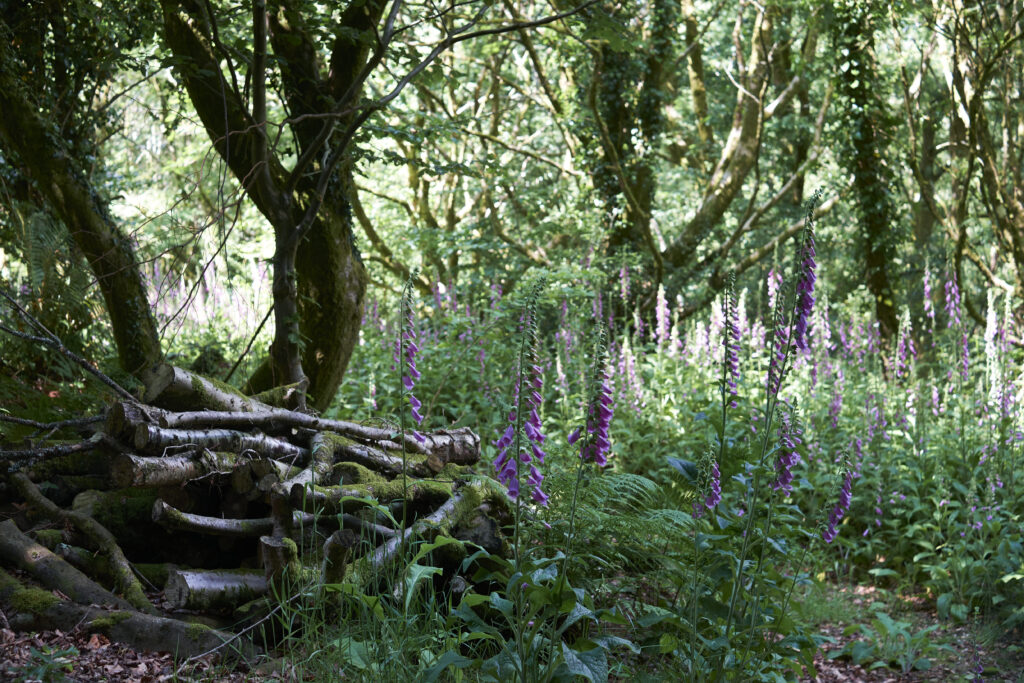We need to turn to considerate forms of land management that strike a balance between productivity and biodiversity, Keith Burgess argues.
Acknowledging the challenges that the natural world faces, in 2021 the Welsh Government declared a ‘nature emergency’.
Species and habitats across Wales are struggling to adapt to new patterns of land management, introduced diseases like avian influenza and ash dieback, and the effects of a changing climate. Sites awarded planning permission under the 2010 One Planet Development (OPD) planning policy, though they make up a tiny fraction of land use in quantitative terms, can show a way forward in fostering more sustainable patterns of land use.
It is possible to develop the productivity of land while actively supporting biodiversity and nature recovery on and off site.
One Planet Developments are exemplars of how it is possible to develop the productivity of land while actively supporting biodiversity and nature recovery on and off site. As part of the OPD planning application process, prospective OPD applicants have to perform a baseline ecological assessment of their site and provide a Management Plan to conserve and improve the habitats and species on site over time. Following the initial phase, another survey is performed to assess ecological changes, identify progress and opportunities to improve further. All OPDs that have reached the re-survey point have achieved tremendous improvements to biodiversity and habitats on site and sites at an earlier stage are showing significant early gains as well. One OPD was even granted permission on a prospective Site of Special Scientific Interest after developing a conservation plan for the Marsh Fritillary butterfly found on site.
As a resident in an OPD, my own experience has been incredibly positive. When the ecologist arrived to do his initial baseline survey here at Hafan y Coed five years ago, he reserved a day to do it. Forty minutes later he had finished – his summary: ‘not a lot here really’. Like many OPD sites, we started from a denuded landscape and what has happened to the biodiversity in just five years is utterly fantastic and astonishing, from a green desert to a landscape which just in the last twelve months has seen fledging swallows, bats roosting in the house, barn owls nesting, and slow worms spotted on site. We’ve achieved this by creating a mosaic of habitats and a diverse range of food plants for different species, including a blooming forest garden and a flourishing new wildflower meadow.
One Planet Developments support nature and biodiversity in many ways: through habitat creation, soil improvement, design for specific species, use of home-made peat-free potting composts, and use of organic and integrated management techniques rather than chemical fertilisers and pesticides. While the conventional view is that development is always negative, a diverse range of habitats are created on OPD sites not despite the development but directly in order to support the provision of services for their human inhabitants: food, heating fuel, water and waste assimilation, a livelihood and a home.
One example is coppice woodland, a traditional and sustainable method of generating biomass for fuel, building materials, or other products. Coppice management is also recognised as providing an important ecological habitat for dormouse, many butterfly and moth species, woodland flowers, birds, mosses, lichens and fungi. 72% of current One Planet Developments have actively increased the area of coppice woodland on site.
A second example is ponds and wetland habitat. OPD sites must process grey water (waste water from all domestic sources except a toilet) on site, often through a reed bed system. In addition, approximately half (52%) of current OPDs have created new ponds on their site or improved the ecological quality of existing pond/wetland habitat, with co-benefits including slug control by amphibian populations.
OPD also offer examples of best practice on tree planting, currently a high priority for the Welsh Government. 75% of OPDs have increased the area and/or quality of deciduous or mixed woodland on their site. Our survey found that 48,194 standard trees had been planted across 36 OPD sites to November 2021, and the number continues to increase. Trees grown on OPDs benefit from continued maintenance and management by the occupants who are able to effectively tend to young trees, increasing the success rate of planting. OPDs plant trees not to meet any targets or tick boxes, but to provide habitat, food, fuel, shelter, shade, building materials, soil regeneration, livelihoods, and beauty. Every tree is there for a reason: they are all “the right tree in the right place”.
While these are still small numbers, the role of One Planet Developments in this context is as exemplar and innovator, showing the way for others to manage land for nature and biodiversity. Often located on ecologically degraded sites, and largely unsupported by any public subsidy, OPDs create a mosaic of new and better quality habitats and actively manage land for a range of species, seeing huge improvement even over the five year timescale. OPDs take an integrated approach to building soil and ecosystem health for the benefit of all ecosystem members, including the human. As such, the time frame of ecological reassessment after five years may not be long enough for potential improvements to be fully realised and recorded.
If we are serious about addressing the nature emergency, One Planet Development is not only a way to unleash committed and caring households to preserve and revitalise aspects of local ecosystems, it also offers an opportunity to experiment on the small scale and share experiences and new ideas more widely. Meeting the needs of both human and non-human together, One Planet Development does not trade off economic productivity for value to nature, but is uniquely able to achieve both.
All articles published on the welsh agenda are subject to IWA’s disclaimer.





